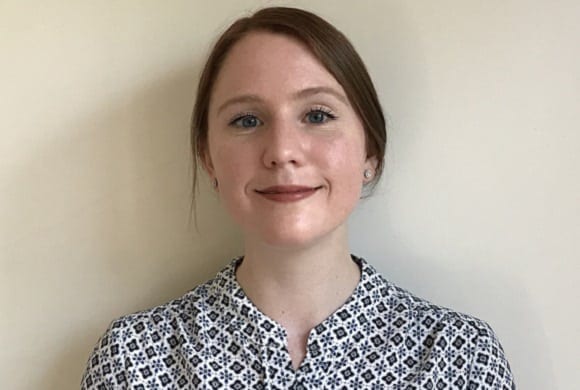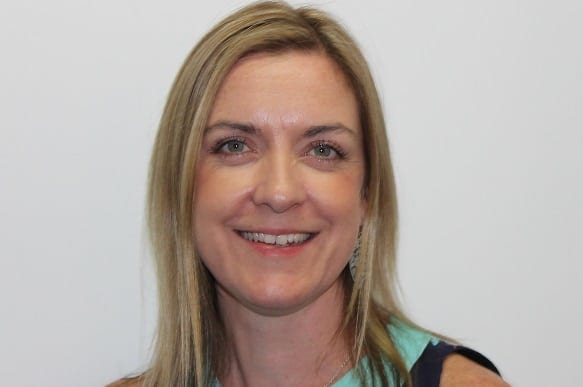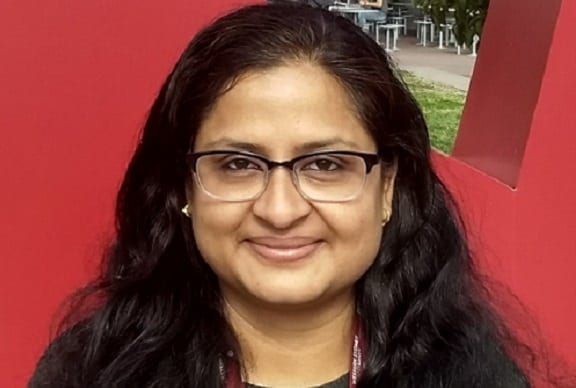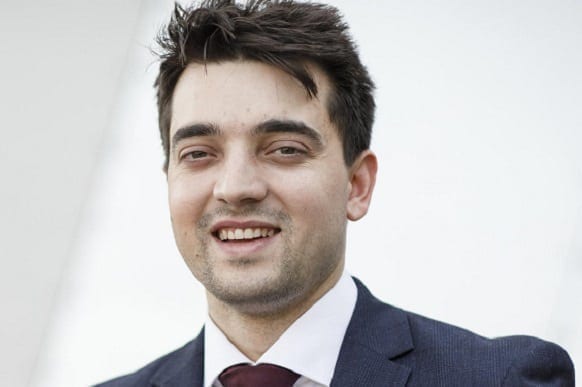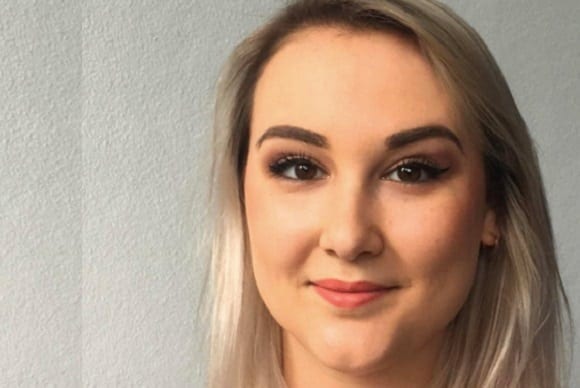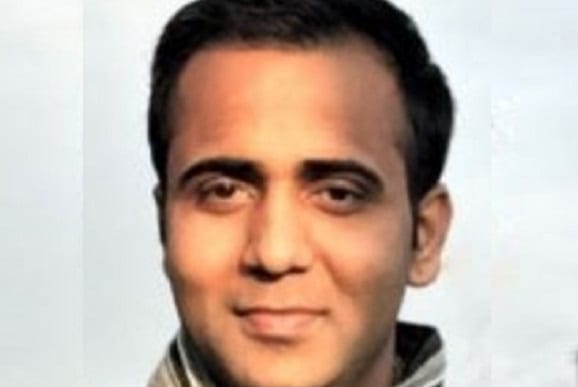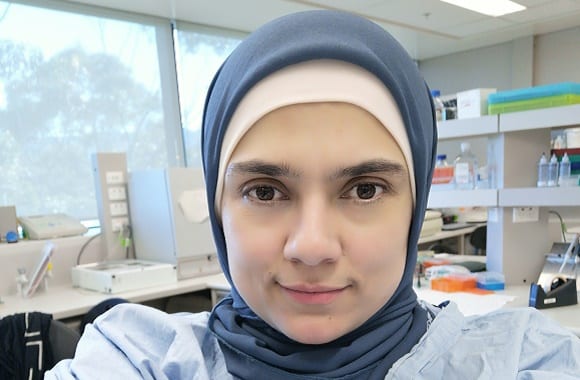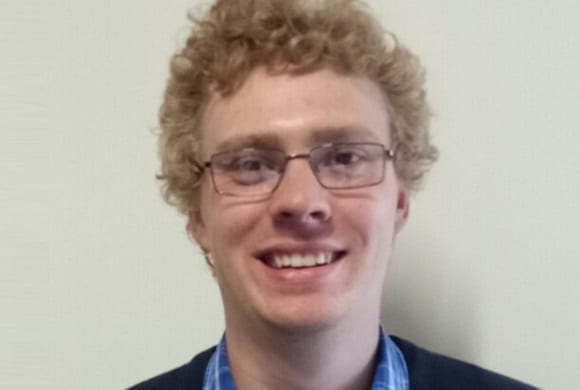Daphne Foong completed her Bachelor of Science (Honours) in 2016 at the University of Sydney, majoring in Biochemistry. During my honours, she focused on neuroinflammation and cytokines, investigating the cytokine regulation of growth factor genes in astrocytes and microglia.
Since February 2017, Daphne was employed as a full-time research assistant in the Bone Biology Unit at the ANZAC Research Institute, working on bone and fat metabolism.
Read more >Lisa Furlong is a PhD candidate at the University of Melbourne. Previously, she completed a Bachelor of Psychological Science (Honours) degree at La Trobe University. She then worked as a clinician in the mental health/alcohol and other drug field for 18 months in regional Victoria, which allowed her to appreciate the difficulties that individuals with mental health disorders can experience.
Lisa’s strong analytical skills and curiosity drove her to pursue research into the neurobiological basis of neuropsychiatric disorders. She completed a Master of Neuroscience (Advanced) at the Australian National University in 2017, where she investigated thalamic morphology in Huntington’s disease using magnetic resonance imaging, before commencing her current research at the Melbourne Neuropsychiatry Centre.
Read more >This project aims to evaluate the effectiveness of a trauma informed parenting intervention on urban NSW Indigenous Australians’ mental health, parenting confidence and parental reflectiveness. It is hoped that the parenting program will improve the self-reported mental health symptoms and parenting experience of urban NSW Indigenous Australians.
Participants will be recruited from numerous Indigenous health services within the Newcastle and Hunter Valley regions. Fifty participants each will be allocated randomly to receive either the parenting intervention or attendance at equivalent number of group sessions as control condition not receiving any intervention.
Read more >Resmi Menon have completed undergraduate degrees in Bachelor of Zoology and Bachelor of Education followed by a Master of Science (MSc) and Master of Philosophy in ‘Stress Physiology and Endocrinology’ from University of Kerala, India. For her MPhil research, Resmi studied the adaptability of aquatic organisms to metal toxicity which has a strong link with her current PhD study.
After graduation Ms Menon taught biological science to high school and undergraduate students for almost 5 years. After moving firstly to Switzerland and then to Australia Resmi began a PhD at Western Sydney University in the winter of 2017.
Read more >My name is Jason Palazzolo. I was born, raised and currently live in Melbourne, Victoria. I have graduated with a Bachelor of Science and a Master of Biomedical Science, both from the University of Melbourne. Following my university studies, I have since pursued a career in the pharmaceutical industry, where I have held several different positions, such as a vaccine manufacturer and clinical trial project co-ordinator. Most recently, I worked as a research and development scientist at Seqirus (a CSL company).
In regards to my personal life, I am currently planning my wedding with my wife-to-be, which is scheduled for early 2019. Also, I’m a passionate follower of the Australian Football League of which I am a long-term member and supporter of the North Melbourne Kangaroos Football Club.
Read more >Gabriela Visini completed a Bachelor of Science in Neuroscience at the University of Otago in 2016, and a Postgraduate Diploma in Science with Distinction in 2017. Gabriela also worked as a research assistant for over two years in a lab studying religion in a social cognition context. Her postgraduate project examined long term spatial memory deficits caused by a single binge exposure of alcohol in the third trimester, using a rodent model.
Ms Visini moved to Sydney in August 2017 with the support of my PhD supervisors, with whom I had been in contact with during my postgraduate course.
Read more >Anjan Bhattarai is currently enrolled as a PhD student in the Department of Psychiatry, School of Clinical Sciences, Monash University. The focus of his PhD project is to investigate structural brain changes in Motor Neurone Disease (MND) using quantitative neuroimaging techniques.
This project is a collaborative project between Monash Biomedical Imaging (MBI), Monash University and Calvary Health Care Bethlehem. Prior to his PhD, Anjan had worked as a research officer at MBI. Anjan completed his bachelor’s degree in Biomedical Engineering from College of Biomedical Engineering and Applied Sciences, Nepal before completing his Master’s degree in Electronic Engineering (Biomedical) at Latrobe University.
Read more >I came from Jordan, I have a master’s degree in Science of Medical Laboratory, with a good experience in pathology and medical science teaching. All my certificates have been recognised here in Australia, and I have registered myself with Australian Institute of Medical Scientist (AIMS).
My passion is in science specially in medicine through research and study. When I had finished my master’s degree I was aiming for my PhD, but it was meant to be back then.
Read more >Throughout my VCE at St. Joseph’s College Ferntree Gully, I developed a passion for biology. Unsure of my life’s direction, I pursued this passion, culminating in the commencement of a Biomedical Science degree at University of Ballarat (now Federation University). Completing my Bachelor’s in 2015, I soon undertook an Honours year at Deakin University in Geelong, after which I was accepted into the PhD program.
Aged 22, I commenced my doctorate, taught university classes, providing occasional lectures, and became a published author, achievements I’m very proud of. I now have the pleasure of being one of Australian Rotary Health’s researchers.
Read more >Patient centered mobile health technology to improve self-management and health outcomes in children and adolescents with kidney transplants.
mHealth has been shown to be effective in doubling odds of medication adherence in chronic disease setting, but currently only has limited data in solid organ transplant setting.
Read more >
